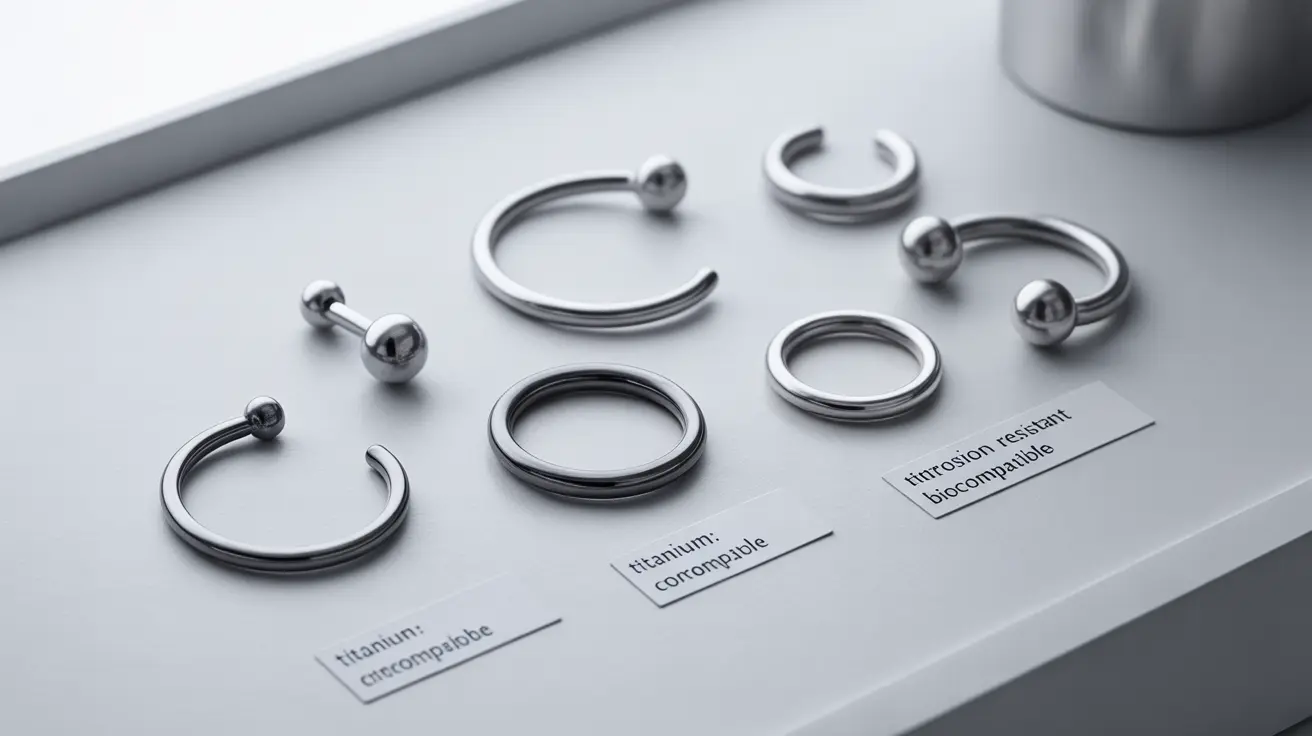When it comes to body piercings, choosing the right jewelry material is crucial for both initial healing and long-term comfort. Titanium has emerged as one of the most trusted materials in the piercing industry, offering unique advantages that make it particularly suitable for new piercings and sensitive skin.
Understanding why titanium is considered an excellent choice for body jewelry can help you make informed decisions about your piercings and potentially avoid common complications. Let's explore the specific benefits and characteristics that make titanium stand out among other jewelry materials.
What Makes Titanium Special for Piercings
Titanium's exceptional properties make it particularly well-suited for body jewelry. The metal is biocompatible, meaning it's safe for long-term contact with human tissue. It's also remarkably lightweight, which reduces stress on the piercing site and surrounding tissue.
The metal's resistance to corrosion and chemical reactions means it won't break down or release harmful substances into your body. This stability is particularly important during the healing process when your body is most sensitive to irritants.
Understanding Titanium Grades for Body Jewelry
Not all titanium jewelry is created equal. The most suitable grade for body piercings is implant-grade titanium, specifically ASTM F-136 or ISO 5832-3. These grades ensure:
- Maximum biocompatibility
- Optimal purity levels
- Consistent quality standards
- Minimal risk of allergic reactions
Benefits of Choosing Titanium for Piercings
Superior Hypoallergenic Properties
Titanium's hypoallergenic nature makes it an excellent choice for people with sensitive skin or metal allergies. Unlike other metals, titanium rarely causes allergic reactions, making it a safe option for most individuals.
Enhanced Healing Process
The inert nature of titanium supports better healing by minimizing the risk of complications. Its smooth surface and resistance to bacterial growth can help reduce the likelihood of infections during the crucial healing period.
Durability and Longevity
Titanium jewelry maintains its appearance and structural integrity over time. It won't tarnish or discolor like some other metals, and it's strong enough to withstand daily wear without degrading.
Comparing Titanium to Other Piercing Materials
When compared to other common piercing materials, titanium offers several advantages:
- More lightweight than stainless steel
- Lower risk of allergic reactions than nickel-containing metals
- Better durability than sterling silver
- Superior biocompatibility compared to gold-plated jewelry
Frequently Asked Questions
Is titanium the safest metal for new or sensitive piercings?
Yes, titanium is considered one of the safest metals for new and sensitive piercings due to its biocompatibility, hypoallergenic properties, and resistance to corrosion. Its inert nature makes it particularly suitable for initial piercings when the body is most sensitive.
Why is titanium recommended for people with metal allergies or sensitive skin?
Titanium is recommended because it's hypoallergenic and doesn't contain nickel or other common allergens. Its pure composition means it's highly unlikely to cause allergic reactions, making it ideal for those with sensitive skin or known metal allergies.
How does titanium jewelry help with the healing process of piercings?
Titanium promotes better healing by being inert and non-reactive. Its smooth surface reduces friction and irritation, while its resistance to bacterial growth helps prevent infections. The lightweight nature of titanium also puts less stress on the healing tissue.
Can titanium piercing jewelry prevent infections and irritation better than other metals?
While no metal can completely prevent infections, titanium's properties make it less likely to cause complications. Its smooth surface, resistance to bacterial adhesion, and non-reactive nature significantly reduce the risk of infections and irritation compared to many other metals.
What are the benefits of choosing titanium over stainless steel or other common piercing metals?
Titanium offers several advantages over other metals: it's lighter than stainless steel, completely nickel-free, more biocompatible than most alternatives, and maintains its appearance better over time. It also has a lower risk of causing allergic reactions and is more suitable for long-term wear.




